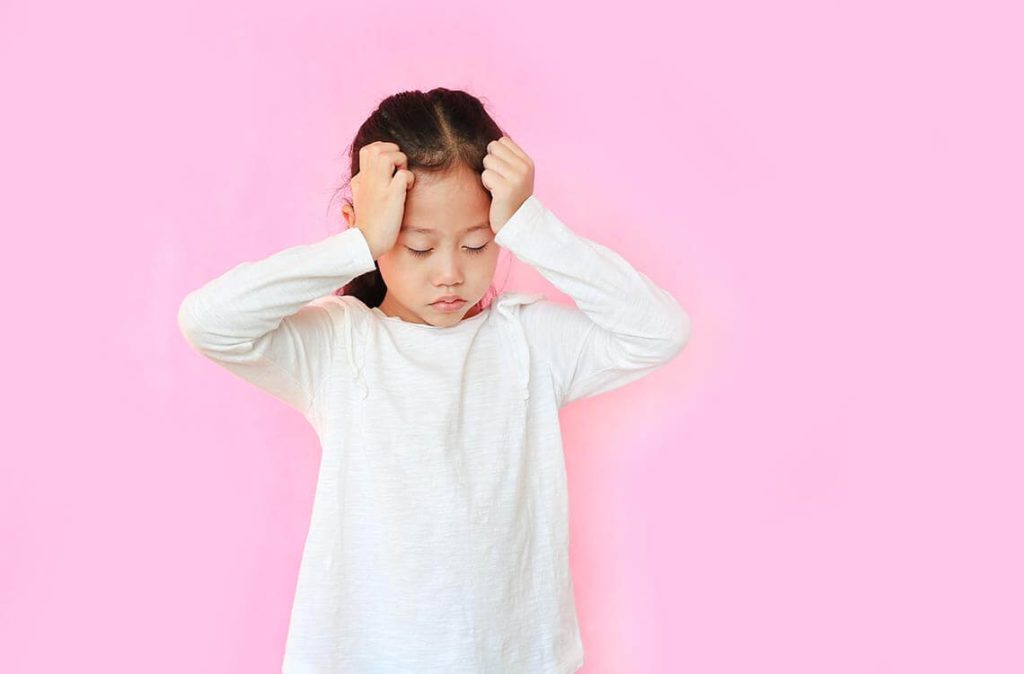Stress affects everyone.
And we mean everyone: men, women, and of course, even children.
But in some traditional Asian households, some parents may not normally acknowledge or notice if the younger members are experiencing this condition. Sometimes unintentionally.
Symptoms like weight loss and poor sleep are often treated as isolated incidents instead of as an indication of more serious, underlying problem.
But you may be wondering why or how kids can be susceptible to stress.
Here’s what you need to know.
Sources of Childhood Stress
Kids are extremely sensitive to their surroundings; they will pick up on the smallest things.
Any marital disputes, financial woes or emotional disturbances and it will affect just as surely as if they are experiencing it themselves.
So, ensure that the household is peaceful and harmonious (or at the very least, stress-free).
However, if things are well at home, then it may be something happening at school or daycare or wherever else they may frequent.
Bullies, overbearing teachers, failing grades – these can just as surely contribute to excessive stress as family troubles.
Social Media
Another oft overlooked source of stress in a child’s life could be their social media.
These days, it is almost impossible to avoid the topic of electronic devices and the internet because our lives are so entrenched in them.
But social media in particular can be the most likely culprit of childhood stress if the other causes don’t seem to be responsible.
Three reasons come to mind: upsetting content, overstimulation or cyberbuylling.
If your child is a doom-scroller (someone who scrolls through social media feeds for upsetting news) then they may be more prone to stress.
Whether it’s animal cruelty, political upheaval, social oppression, or economic turmoil, social media is filled with all this negativity that is not all appropriate for children to consume, especially if they’re under 13.
On the flipside, there’s overstimulation, characterised by an addiction to the rush of dopamine that comes from watching things like TikTok videos. An impulse fuelled by F.O.M.O and instant gratification.
But all in all, the rise of social media has been shown to be greatly damaging to the mental health of children.
Cyberbullying is another source of social media stress that everyone experiences from time to time in varying levels of severity. From the occasional internet troll to straight up keyboard terrorists.
Make sure your child isn’t dealing with either while they’re on the net.
While not discounting the genetic element that makes some children more prone to stress than others (such as having a family history of chronic stress), it is usually a result of nature AND nurture that makes cases of childhood stress highly likely.
Signs of Childhood Stress
Several studies have pinpointed common symptoms of stress in children.
Here are just some ones that you should watch out for.
Anxiety and Depression
One obvious sign of childhood stress that can be noticeable immediately is mental health issues like anxiety and depression.
Just like adults, children also experience intense negative emotions like fear and sadness that manifest in their day to day.
If your child is often nervous about doing anything, or conversely, no longer interested in engaging in their favourite activities this is when you need to start worrying about their stress levels. Especially if there’s a lot of things going on in their lives.
Changes in Eating and Sleeping Habits
Your child may either be eating less or eating more than usual if they’re stressed. A sure sign that something is wrong.
They may also either be sleeping more, or not sleeping enough, staying up past their bedtime.
Insomnia could be a common symptom.
Be sure to rule out any other serious medical issues that may be at play.
Symptoms of stress often overlaps with many conditions and disorders.
Clingy Behaviour
If your child is particularly young, they may find comfort in physical contact. Often clinging to their parents for dear life and not wanting to let go.
You see this a lot with kids on their first days of school, or when they’re in a large crowd and unfamiliar with other adults or kids in the vicinity.
But older kids are much less likely to be clingy; in fact, they may actually distance themselves.
Aggression and Irritability
Stress can often manifest as behaviour problems because they don’t yet have a grasp on socially acceptable coping mechanisms.
Adults may self-medicate, but children don’t have this luxury.
So, when the pressure builds, it may often explode out in waves of aggression and irritability.
You may find that your child may sound rude or sarcastic or say hurtful things. Stress could be to blame.
Helping Your Child Cope
In this day and age where stressors are around every corner, it can be impossible to protect your child forever from a stressful life.
As parents, it’s important that you remain vigilant and attentive to your child’s worries, no matter how small they may seem. Especially if you’re lucky enough that your child willingly comes to you for help.
This may just be your only chance to stop their stress in its tracks and gives them a normal childhood.
Disclaimer: The information provided in this article is for informational purposes only and should not be considered as medical advice from Motherhood. For any health-related concerns, it is advisable to consult with a qualified healthcare professional or medical practitioner.
For more insightful stories and fun recipes, stay tuned to Motherhood Story!
